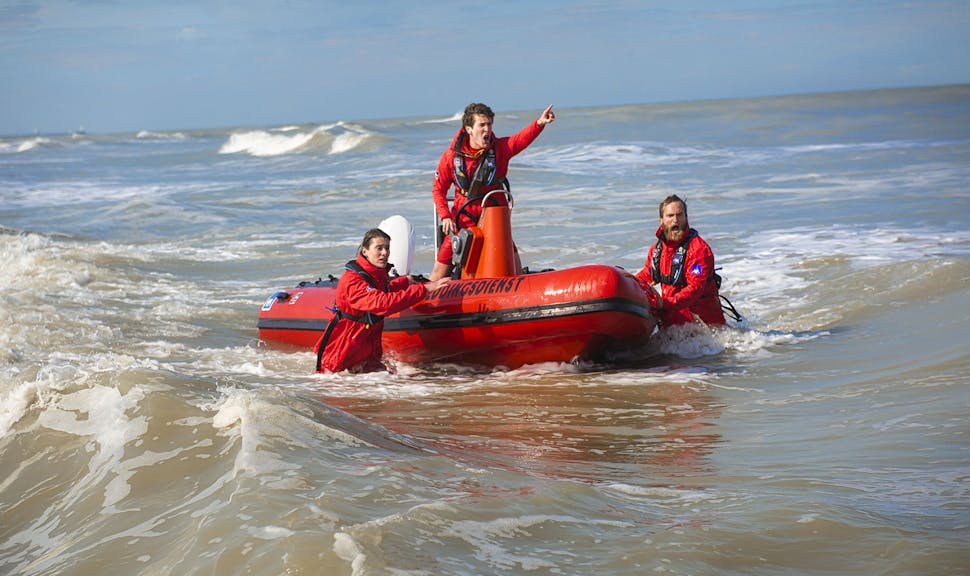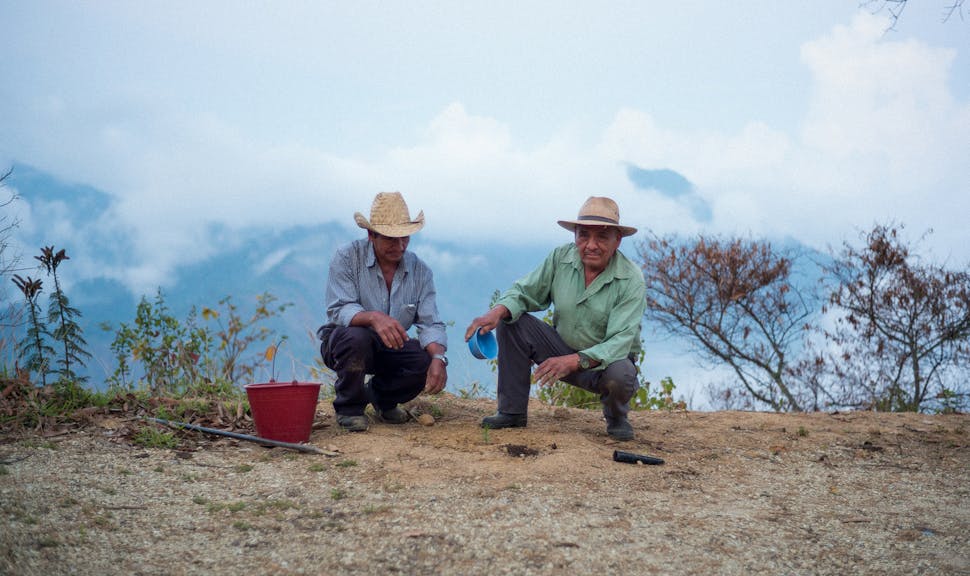
January 23, 2019
Understanding Emerging Risks: how have they evolved over the past 5 years?
7 minutes
Climate change and cyber risks: perennial concerns from year to year
In a year marked by massive wildfires, flooding and the publication of a grim report by the Intergovernmental Panel on Climate Change (IPCC) on one hand, and the application of the European Union General Data Protection Regulation on the other, these numbers highlight the strong conviction of respondents that climate change and cyber security are the two main emerging risks for society at large. Bound up closely with climate change, natural resource management (#4) has also remained a constant preoccupation throughout every year of the survey.
In recent years, the perception of emerging risks has tended to converge across the globe when it comes to the top two emerging risks: climate change and cyber security. A global alignment is taking place on these topics. Awareness of these risks is growing not just in Europe or North America, but worldwide.
While this may reflect the global nature of these threats, the scale and magnitude of climate and cyber risk emergence can still vary from one region to another. Each region faces distinct sets of cyber risks, due to varying levels of technological advancement and the presence of high-value targets for hackers. Exposure to this risk is not the same in Europe, Africa and in Asia for instance.
Financial and medical risks: two blind spots?
Another salient trend is the fading importance of financial risk since the first Emerging Risks survey in 2014. In fact, ten years after the financial crisis, risks related to financial instability, macroeconomic trends and monetary policies figure nowhere near the top of the ranking.
While it is quite interesting to observe that respondents do not foresee significant emerging economic and financial risks in the coming years, the reasons underlying this trend are less clear. This fact can be interpreted as a sign that people are perceiving other risks to be more significant than a potential economic slowdown.”
Medical risks have also taken a back seat, which comes as no surprise: since 2014, no risk related to medicine and health has ever reached the Top 5. This may be due to the relative lack of media attention given to these topics, except when a major public health crisis such as a pandemic (#10) threatens human lives.
However, given the world’s demographic trends, and more specifically population ageing, medical issues are poised to become more prevalent in coming years. Is this a blind spot in our risk perception, or simply a reflection of the growing complexity of the risk landscape?
Interconnection of risks, demographic changes, global convergence: three major trends in emerging risks
With each new Emerging Risks survey since 2014, some broad trends have begun to come into focus for our respondents. These trends may have a significant impact not only on how society perceives risk, but also on how institutions plan to tackle the potential consequences of these risks in coming years.
Trend #1: Emerging risks are strikingly interconnected
It is becoming more apparent that a multidisciplinary perspective is crucial to understanding the interconnections between risks. In fact, not only are emerging risks influenced by the same factors, but they also influence each other in complex ways.
As a result, analysts may need to adjust their approach to view these risks as intertwined, rather than in silos. For instance, geopolitical risk depends heavily on economic, social and environmental conditions, while this geopolitical volatility in turn generates immense uncertainty in the public and private spheres.
Trend #2: Shifting demographics are driving the emergence of risks
The top emerging risks from our survey highlight the overarching issue of demographic change. Indeed, population growth is transforming the risk landscape, as are demographic trends such as ageing and migration.
These changes in population affect economic, geopolitical and societal dynamics on the international, regional and local scale. It is wonderful news that people are living longer lives. But this also poses a challenge to resource management, especially in the context of rising demand and supply scarcity, while raising new concerns in terms of healthcare.
Trend #3: Converging perception of global risks
Across the world, the perception of emerging risks has converged over the past five years when it comes to the top two risks: climate change and cyber security. The underlying reason for this general consensus may be global nature of these threats. In fact, these threats face us all, as they can have wide-reaching consequences impacting every geographic area.
Though no region is spared from climate change or cyber security issues, these risks may demonstrate sharp geographic variation in terms of scale and magnitude. For this reason, coastal areas and islands will require more extreme preparatory measures to brace for climate risk than inland areas, while the nature of cyber threats can vary immensely between Europe, North America and Asia, for example.
And in 2018?
Emerging Risk #1: Climate change

For the fourth year in a row, respondents have selected climate change as the number one emerging risk. The consensus is strong on this topic, with respondents in most regions and professional sectors listing climate change as the biggest challenge facing society. And the case is only becoming more convincing: last year, the percentage of respondents who placed this risk in their Top 5 rose substantially, from 39% to 63%. Perhaps because climate change is interconnected to nearly all other forms of risk.
In addition, climate change is perceived to be a pressing issue, with 51% of respondents saying the risk has already emerged. Risk perception is especially important in this area, since the extent to which climate change evolves may depend on our ability to take action and influence the present course of events. As indicated by the recent IPCC report, the target set by the Paris Agreement will likely not be met without radical, far-reaching action, which does not appear to be a priority everywhere across the globe.
Emerging Risk #2: Cyber security

Cyber security is an ever-increasing concern for governments, political parties, companies and individuals, as expanding web access and a growing list of connected devices open new doors to cyber criminals. However, there is no clear consensus on the main source of this risk. Indeed, due to the complex and evolving nature of cyber risk, the 54% of respondents indicating cyber security as a leading risk expressed several concerns:
- Cyber-physical attacks can hit critical infrastructures (32%) and cause severe disruptions in energy and water supply, telecommunications, transportation.
- Connected devices are increasingly vulnerable (32%), especially with the development of the Internet of Things and connected vehicles.
- New types of malware can pose a threat (21%), such as ransomware, which hackers can exploit and threaten to leak data or block access to IT systems until a ransom is paid.
Emerging Risk #3: Geopolitical volatility

Geopolitical volatility (#3) has broken into the Top 5 this year, for the first time since the launch of the survey, which could reflect mounting concerns about the global context of surging populism and protectionism. Renewed political tensions, turmoil caused by new players in the international arena, and rising macro-trends disrupting the status quo convinced 45% of respondents to list geopolitical risks as rapidly emerging.
Exacerbated by attacks on the “globalized multilateralism” that has ensured a steady geopolitical equilibrium and robust international institutions – as demonstrated by the US withdrawal from the UN Human Rights Council in June – volatility in the geopolitical landscape provides a pertinent example of interconnected risk.
The rise of alternative models to the Western democratic standard, as well as the decline of international governance and accord may explain why respondents, mostly in Europe and North America, feel that the world could become more unstable by 2025, especially as the waning influence of these bodies may hinder the global responses needed to face global risks.
Emerging Risk #4: Natural resource management

Natural resource management placed second in the 2015 Emerging Risks survey, and it has remained in the Top 5 ever since. And for good reason: natural resources such as land, water, air, minerals, forests and fisheries provide ecosystem services that are essential to human life. Human activities have placed these resources in jeopardy, which can lead to negative impacts on our quality of life.
Unsustainable natural resource management represents both a cause and a consequence of climate change. In addition, these risks act as major drivers of social, political and economic instability, as already seen in environmentally stressed regions like the Middle East.
Emerging Risk #5: Social discontent and local conflicts

The emerging risk of political and social unrest has climbed 7 spots this year, with 25% of respondents selecting it as a top emerging risk. Growing social discontent can spell trouble for economic activity and overall political stability, crippling our ability to respond to present challenges.
Respondents point to two main causes for this unrest: growing economic inequalities (40%) and the influx of migrants or territorial issues (34%).This context of increasing social tension and unrest was recently highlighted by the protests staged by the “Yellow Vests” in France.
An updated format for 2018
To learn more about the emerging risk landscape, the AXA Emerging Risk team updated the survey format for the 2018 edition. Our methodology had remained unchanged since 2015. But for this year’s survey, we wanted to push our analysis even further.
This year, the survey focused exclusively on the risk landscape in the next 5 to10 years, with respondents selecting 5 emerging risks out of 25 and ranking them based on their potential impact on society. This year’s survey also featured additional questions pertaining to the pace of emergence and the level of awareness associated with the selected risks.
Gathering insights from 1,235 respondents – 1,060 AXA employees and 175 external stakeholders – coming from 50 countries and different professional backgrounds, the Emerging Risks survey thus offers a snapshot of the forecasted state of the world at large. This visibility enables insurers and other organizations to better understand and proactively prepare for the risks that are most concerning for their stakeholders.



